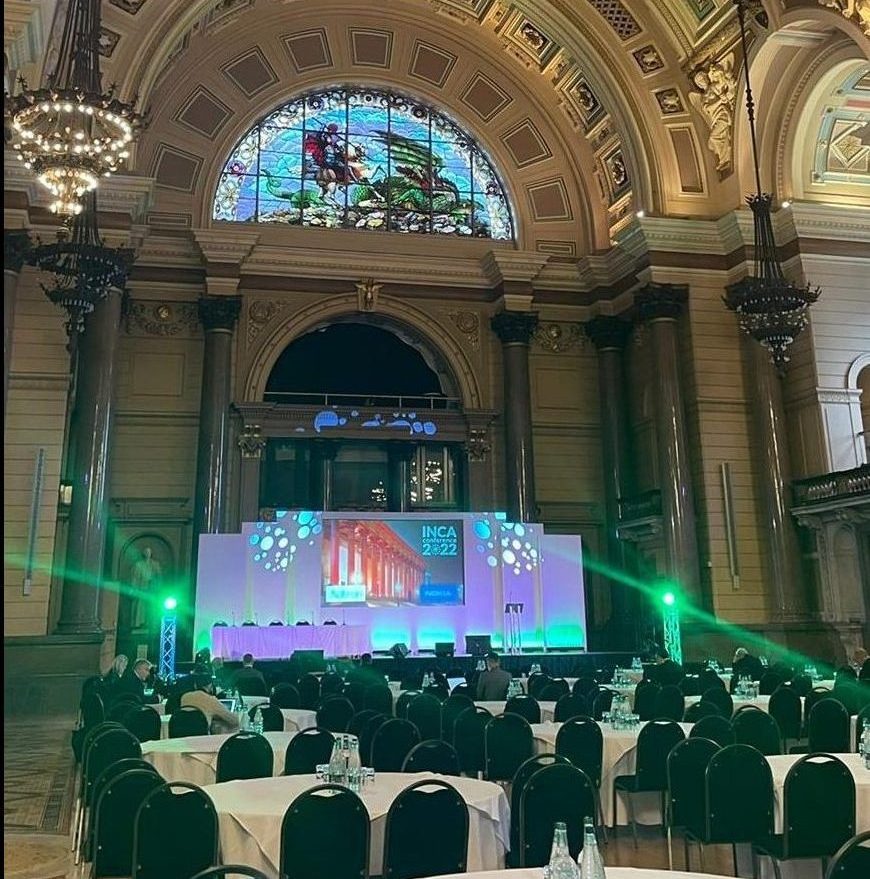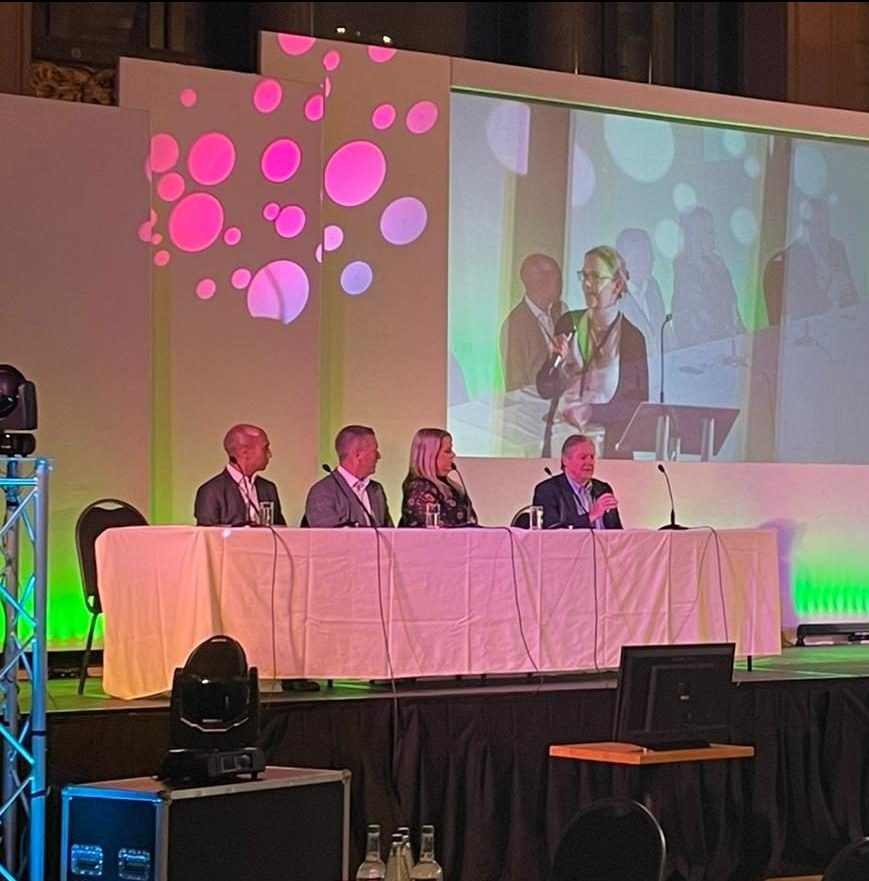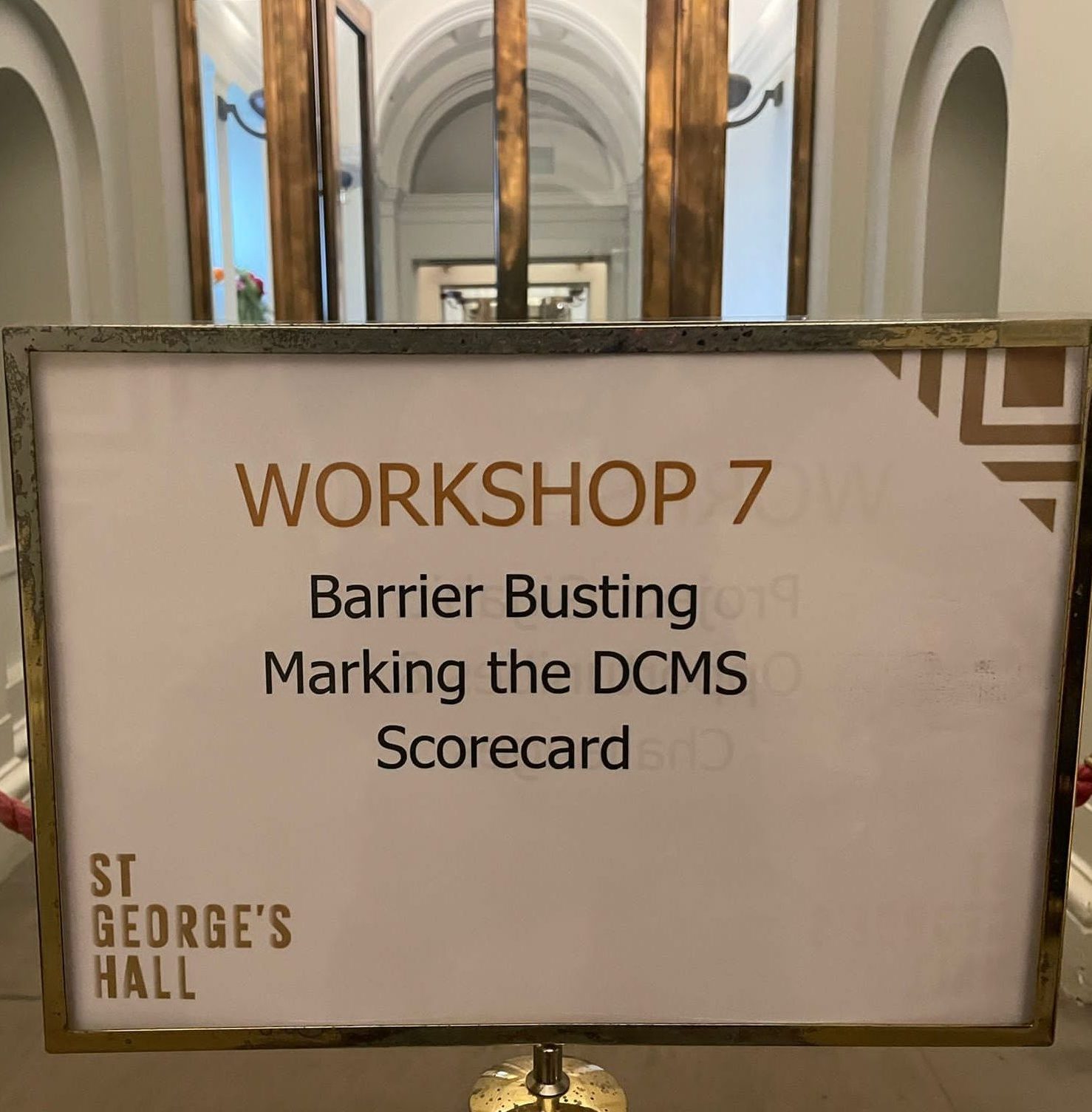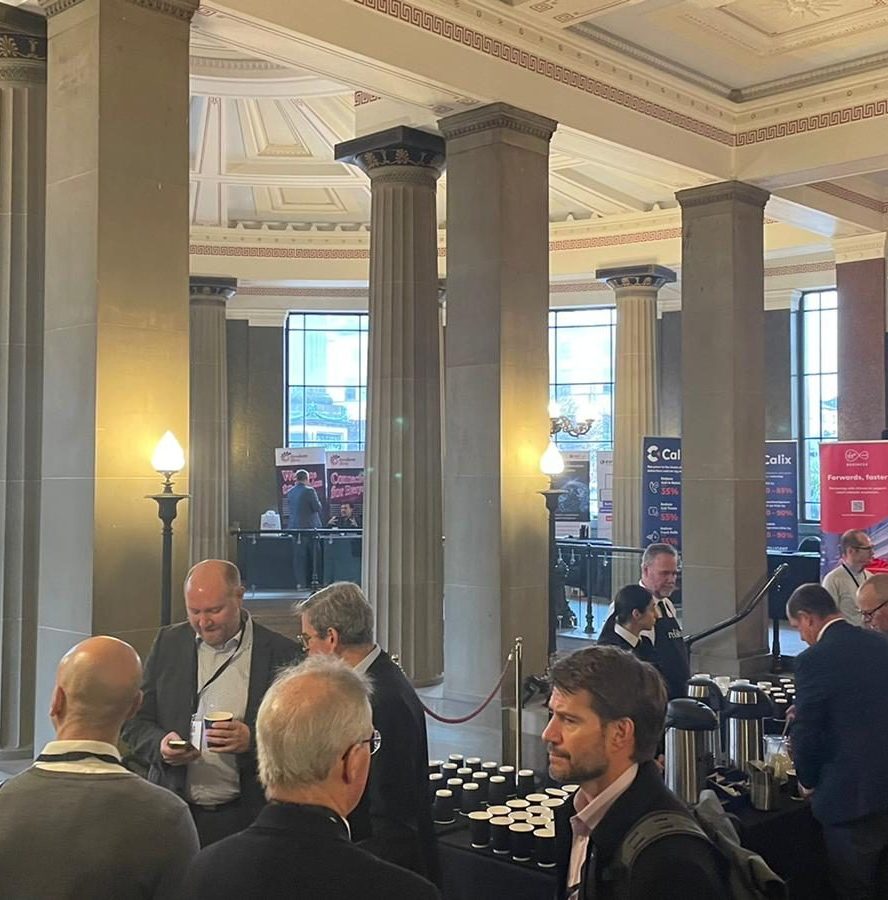The venue – St George’s Hall – made for a dramatic backdrop, with commentary from the five participants further emphasising the gravitas of the challenges and opportunities within the connectivity market at present.
It was clear that the ‘Barrier busting – marking the DCMS scorecard’ session could have lasted much longer than the allocated hour, with questions flooding in from delegates once the host’s own topics had been covered.
But key takeaways from the group discussion, included:
-
-
- The DCMS has achieved welcome progress at the highest level and the PSTI Bill will certainly drive positive change. However, challenges remain when it comes to the intricacies of each network build. Things are difficult to standardise, therefore further consideration is required in this respect.
- When it comes to local authorities, further differences arise. The DCMS has done a great job in setting out counsellor guidance for instance, however, much depends on the knowledge of the individuals concerned – with some not even understanding what full fibre broadband is. Continued efforts to educate, remain imperative.
- An audience member also expressed frustration that resource constraints within local authorities appear to be slowing down responses to wayleave requests, and that it had even had to fund a position within a local authority to get the wayleaves completed. That said, elsewhere, comments suggested even some extremely pressured councils are progressing at pace, which implied resource isn’t the problem.
- Local authority engagement appeared a unanimous priority, with early interaction critical. However, that engagement must be consistent and mutual, with all parties committing to communication. All too often, it seems that true conversation only begins when there is a problem, which is counterproductive.
- Transparency is also important. Clearly highlighting who is responsible for what, and making that information readily available, is arguably such a simple step but one that would save time and wasted effort, when telcos don’t confidently know who to speak to.
- Local authorities are rightfully concerned about the social value of projects taking place in their districts, so if network operators can communicate this – particularly when it comes to handling wayleave agreements – the process is likely to flow much more smoothly.
- With so much regulation and information to consume – for example, when it comes the exercise of Code powers by the network operators – this can lead to fragmentation of understanding, especially at a local authority level. Most network operators will not exercise their Code powers by issuing statutory notices (even after continuous, but unanswered, efforts asking for permission to access properties). This is because either the local authorities do not know what the notices are, or the operators do not want to appear aggressive with the local authorities. Ultimately, however, this leaves residents in social housing without the benefits of full fibre. Organisations throughout the connectivity ecosystem should therefore take ongoing steps to collaborate and share best practice.
- Poles came up in conversation again and again – where are they located, who owns the land, who do telcos need to speak to, and what process do they need to follow to gain compliant access? Such basic questions continue to raise their heads, particularly when information is inaccurate or unclear. Data enrichment matters now more than ever.
- The cost to access a land registry title – £3 each – soon adds up. Reducing this fee is an easy matter to address, but would bring about overwhelming financial benefits.
- There’s no quick fix when it comes to wayleaves for commercial property frontages such as shopfronts, particularly on busy high streets. This reinforces the need to engage a telecoms wayleave specialist who understands the process – and this market – inside out, not least because of the time typically involved.
-
If you require wayleave assistance with your network build – or wider commercial legal assistance from our experienced team – please contact us. We’re not your typical law firm…













